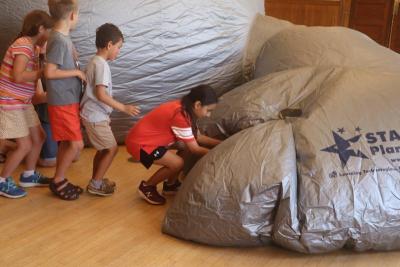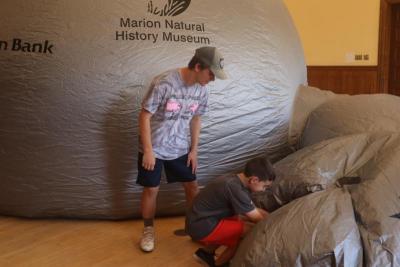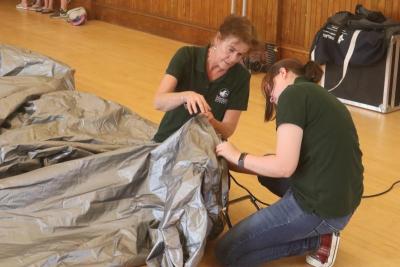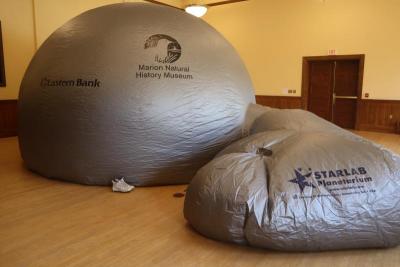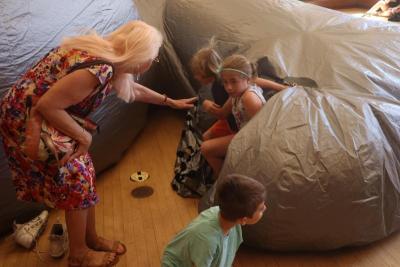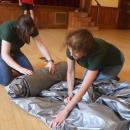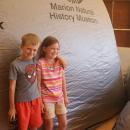Children explore the night sky in inflatable planetarium
MARION — Children learned about the night sky and myths about constellations in the first event of a weekly series called “A Universe of Stories” hosted by the Elizabeth Taber Library on Wednesday, June 26.
Maria Patrone, Starlab educator of the Marion Natural History Museum, brought an inflatable planetarium to the Marion Music Hall to give educational presentations to children.
She inflated the tent-like structure using a fan. The planetarium has a rotating projector with a light bulb and various film canisters to display images of the night sky on the top of the dome. Patrone used one canister to display constellations identified by cultures across the world, and another to show a typical night sky as it would be seen from a rural area, free of light pollution. The projector rotates slowly to represent how the night sky changes over time.
Patrone is a graduate of Bridgewater State University, where she studied astrophysics and worked at the school’s observatory for four years. She used her knowledge and experience gained at the university to develop her presentation, which centered around cultural myths about constellations.
Due to limited space inside the planetarium, the children broke up into two groups. The first 20 to sign up for the event were allowed in first, and the remaining children attended the second presentation of the day. Both presentations covered the same material and lasted about 25 minutes.
Patrone said she chose to speak about constellations because “humans have looked up to the stars and made stories about them since humans have existed.”
She chose to focus on star formations that are easily identifiable, such as the star cluster Pleiades. The cluster is in the constellation of Taurus and has been known to cultures across the world for centuries. Although the number of stars in the cluster that are visible from Earth vary depending on weather conditions, the greek name refers to the seven sisters, or pleiads who were the daughters of Atlas.
In Hawaiian tradition, the cluster is known as Makali’i, and in Japan it is referred to as Subaru (yes, the automobile company was named after a group of stars).
Children’s librarian Rosemary Grey said that the goal for the event was for children to have fun and learn about the universe around them. The next event for “A Universe of Stories” will be a science experiment titled “Don’t try this at home” on Wednesday, July 3 at the Marion Town Music Hall at 2 p.m.




